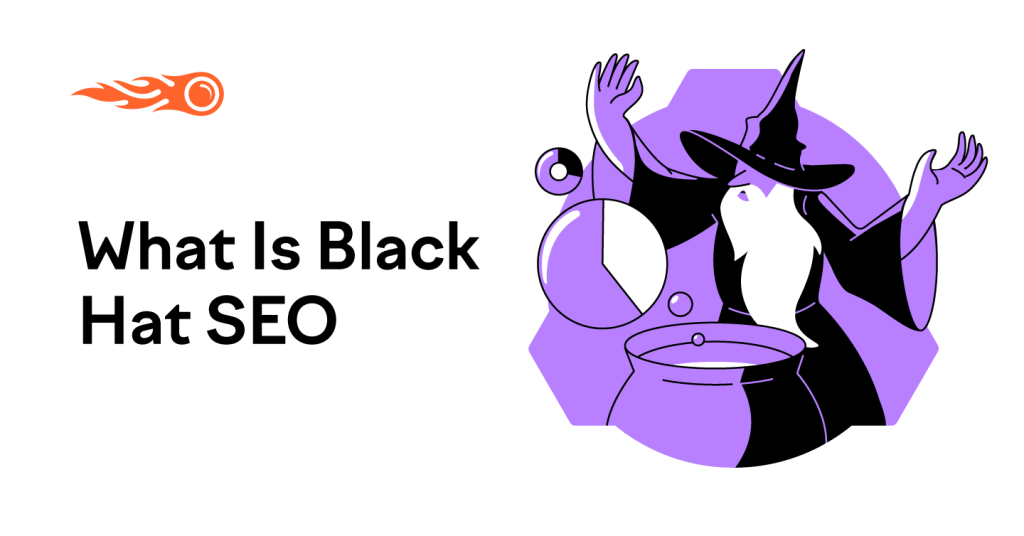In the world of search engine optimization (SEO), there are two main strategies: white hat and black hat. White hat SEO techniques adhere to ethical and sustainable practices, while black hat techniques use deceptive tactics to manipulate search rankings. While it may be tempting to try out some black hat tricks for quick results, the risks far outweigh any potential benefits. In this article, we’ll explore common black hat SEO techniques and why they could ultimately steal your momentum in the long run. Let’s dive in!
Table of Contents
What is black hat SEO?
Black hat SEO refers to any tactics used to manipulate search engine rankings by breaking the rules set out by Google and other search engines. These techniques are often designed to trick search algorithms into thinking a website is more relevant or authoritative than it actually is.
Some common black hat techniques include keyword stuffing, cloaking, link schemes, and hidden text. Keyword stuffing involves overusing target keywords in content or metadata, while cloaking shows different content to users and search engines. Link schemes involve buying or exchanging links with low-quality websites, while hidden text hides irrelevant keywords on a page.

While these tactics may seem like quick fixes for improving rankings, they can have serious consequences. Search engines regularly update their algorithms to detect and penalize sites using black hat strategies with lower rankings or even removal from search results altogether.
In short, black hat SEO may provide short-term gains but will ultimately harm your website’s reputation and visibility in the long run. Stick to ethical white hat practices for sustainable growth and success online.
Common black hat SEO techniques
Black hat SEO techniques are unethical and violate search engine guidelines. However, some website owners still use them to improve their rankings on search engines quickly. Here are some common black hat SEO techniques that you should avoid.
Keyword stuffing is the practice of filling your web pages with irrelevant keywords in an attempt to manipulate search engine rankings. It can hurt your ranking and make your content unreadable for users.
Cloaking is a technique that shows different content to users than what they see in the search results. This method will get you penalized by Google as it violates their policies.
Link farming involves creating multiple websites or acquiring links from low-quality sites to increase your backlinks artificially. It’s a quick way to get penalized by Google as it doesn’t add any value to user experience.
Duplicate content refers to copying and pasting content from other websites onto yours without adding any value or originality. Search engines might penalize you if they find duplicate content on your site.
By using these black hat SEO techniques, you may achieve short-term gains but risk losing long-term momentum due to penalties imposed by search engines. Instead, focus on providing quality content and following ethical practices such as white hat SEO strategies like keyword research, link building through outreach campaigns, producing top-notch tailored meta descriptions alongside improving internal linking structures for better UX/UI navigation
The risks of using black hat SEO techniques
Using black hat SEO techniques may seem like a quick and easy way to boost website traffic and improve search engine rankings, but it comes with serious risks. Search engines have become increasingly sophisticated in detecting such tactics, and if caught, the consequences can be severe.
One of the biggest risks of using black hat SEO is being penalized or banned by search engines. This means that your website will no longer appear in search results, resulting in lost traffic and revenue.
Another risk is damaging your brand reputation. Black hat techniques often involve spamming users with irrelevant content or links. This can result in negative feedback from customers who feel misled or cheated.
Furthermore, these practices may also harm your relationships with other websites as they could refuse to link back to you once they discover that you were using manipulative tactics.
Using unethical methods for short-term gains might seem tempting but ultimately jeopardizes everything that you’ve built over time. It’s always better to focus on long-term strategies such as producing high-quality content, building quality backlinks through outreach campaigns rather than trying out risky shortcuts which might lead to irreversible damage!
How to avoid using black hat SEO techniques
If you want to gain long-term success with your website, it’s important to avoid using black hat SEO techniques. These unethical tactics might seem like a quick fix for boosting your rankings on search engines, but ultimately they can cause more harm than good.
The first step in avoiding black hat SEO is to educate yourself and your team about what these practices entail. Some common examples include keyword stuffing, cloaking or hiding text from users, and buying backlinks.

Instead of relying on these tactics, focus on creating high-quality content that provides value to your audience. Use relevant keywords naturally throughout your website and aim for a clean design that makes it easy for users to navigate.
Another key aspect of ethical SEO is building legitimate relationships with other websites in order to earn backlinks organically. This might mean reaching out to influencers or bloggers who are interested in topics related to your industry.
By focusing on ethical SEO practices and providing real value for your audience, you’ll be able to build a strong foundation for lasting success online.
Conclusion
To sum it up, black hat SEO techniques may seem like a quick fix to boost your website’s ranking and traffic. However, the risks involved in using such tactics far outweigh the benefits. Search engines are becoming more sophisticated every day and they can easily identify websites that use unethical practices.
Instead of resorting to black hat SEO techniques, focus on creating high-quality content that provides value to your audience. Optimize your website with ethical white hat SEO strategies like keyword research, link building, and proper meta tags.
Remember that building momentum through sustainable organic growth takes time and effort but it is worth it in the long run. By avoiding black hat SEO techniques, you can stay ahead of algorithm updates and maintain your search engine rankings.
Ultimately, always prioritize providing value to your audience rather than trying to manipulate search engines for quick results. This will not only benefit your website’s ranking but also establish trust with potential customers and lead to long-term success for your business online.



